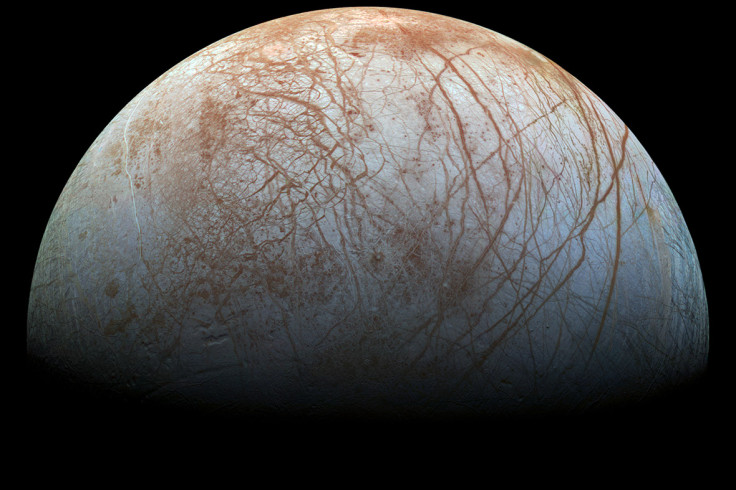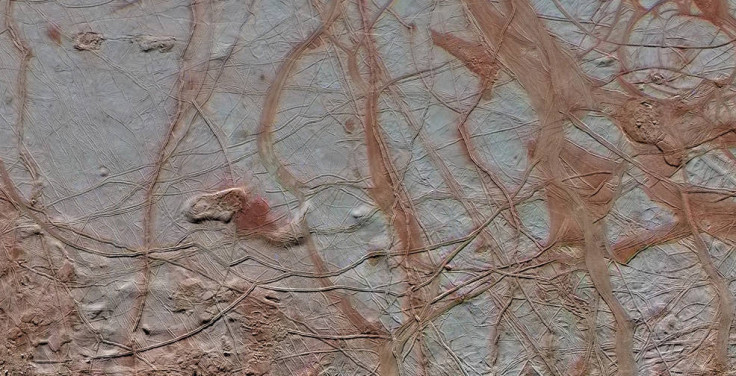Nasa: Europa's hidden ocean could have right chemistry to host alien life

The ocean hidden beneath the surface of Jupiter's moon Europa could have the right chemistry to support life. Nasa scientists have said the salty ocean below the moon's icy surface could be Earth-like in its balance of chemical energy – in particular the ratio of oxygen and hydrogen.
Published in the journal Geophysical Research Letters, a team from Nasa's Jet Propulsion Laboratory looked at Europa's potential for producing hydrogen and oxygen through processes that do not involve volcanism and compared it with Earth. Previously, it was thought volcanism is required for the creation of a habitable environment as, without it, the movement of oxidants from the surface would make the ocean too acidic for life.
Steve Vance, lead author of the study, said: "We're studying an alien ocean using methods developed to understand the movement of energy and nutrients in Earth's own systems. The cycling of oxygen and hydrogen in Europa's ocean will be a major driver for Europa's ocean chemistry and any life there, just as it is on Earth."
The team worked out how much hydrogen could be produced in Europa's ocean through a process called serpentinisation. This involves water reacting with rock to form new minerals and releasing hydrogen in the process. They looked at how cracks in Europa's seafloor would open up as the rocky interior cools following its formation billions of years ago. As these new cracks appear, fresh rock is exposed to seawater, meaning more hydrogen can be produced.

They also looked at the amount of oxygen by looking at the oxidants being cycled into the ocean from Europa's icy surface. Radiation from Jupiter splits water ice molecules to create the materials, which could then be carried down into the ocean.
Findings showed that the balance of hydrogen and oxygen is comparable to that which is found on Earth – oxygen is produced at a rate 10 times higher than hydrogen. "The oxidants from the ice are like the positive terminal of a battery, and the chemicals from the seafloor, called reductants, are like the negative terminal," said Kevin Hand, co-author of the study. "Whether or not life and biological processes complete the circuit is part of what motivates our exploration of Europa."
Nasa is currently planning a mission to Europa to further investigate its potential to host life. "Europa is special for the potential to have a high flux of oxidants to its ocean," the authors concluded. "We predict that Europa's large and persistent chemical fluxes of oxygen and hydrogen ... could balance in a way that is unique among potentially habitable icy worlds in the solar system. For this reason, Europa may have favoured the origin and evolution of life.
"Further work is needed, on Earth and Europa, to determine the conditions for evolving complex life, and whether Europa may have produced such conditions."
© Copyright IBTimes 2025. All rights reserved.






















